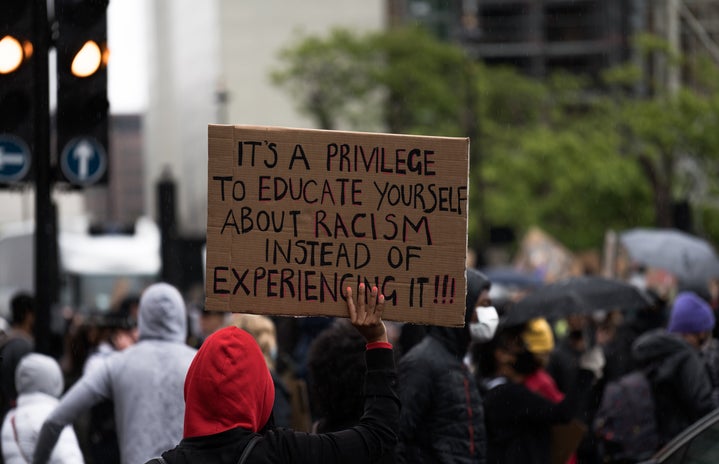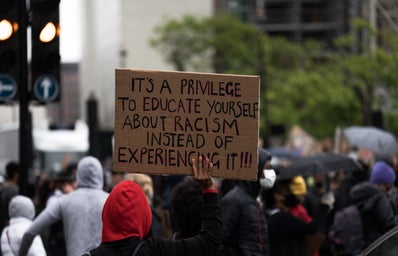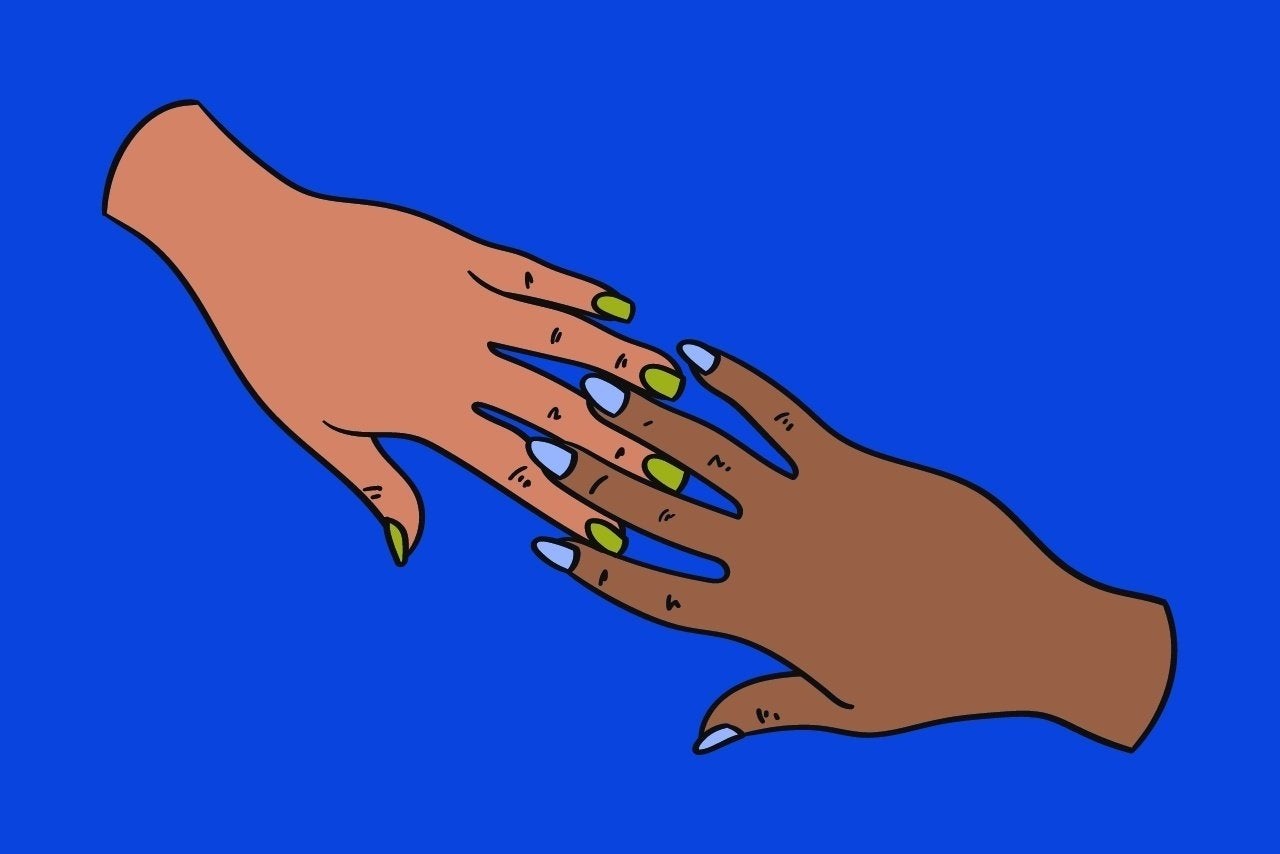Privilege. It’s one of those words that is always thrown around in discussions surrounding racism, inequity and has become something integral to the social framework of modern day society. I had heard this word a lot. “White privilege” or “Check your privilege” are phrases that come up in frequent conversations with my friends. The concept of privilege is something that I’ve been grappling with for a while for quite some time and in an odd way my understanding of it has been flipped recently.
I encountered privilege in my introduction to cultural anthropology class last semester when my classmates and I were learning to understand the biases we approach topics in class with and how to set them aside. One day we did an exercise to help us be cognizant of our own privilege. Typically in a classroom setting this exercise would’ve looked a little bit different, but we were remote. The typical exercise requires all students to start in a single file line and listen to statements regarding privilege. If they agree with the statements, students take steps forward. Students can also take steps back to designate a disagreement with the statement or a lack of a certain privilege in a certain situation. Due to the remote nature of the class we did this exercise on a point system where taking a step forward would correspond to an addition of a point and a step backwards corresponded to a loss of a point.
Soon after completing exercise my classmates hammered on about all the privileges they didn’t realize they had and how they were going to keep that in mind and “check their privilege” moving forward. I, on the other hand, was at a loss. My final point value was in the negatives. In a way this meant that I was deemed “underprivileged”. I had taken more steps backwards than forward. I had ended behind the starting point.
I had never seen myself or let me see myself in this light. As a society, we like to put people in boxes surrounding their identity. My whole life I had always thought that other people had it worse than I did. I grew up lower to middle class in an affluent suburb in central Ohio as a member of the Asian race. In the back of my mind there were times that I recognized that I was living a life filled with extra obstacles, but I was strong enough to power through. However, that shouldn’t have discounted that I don’t face obstacles.
Up until college I hadn’t recognized myself as a person of color. I hadn’t recognized that I struggle to navigate majority white spaces. I hadn’t accepted that there are places in this country where I don’t feel safe or accepted. There are people in this country that don’t want me here or value my being human. There are people in this country who discriminate against me for my religion, for my ethnicity and for my immigrant background. I will never be white and I will never understand what it is like to navigate comfortably in this world when it feels like it was never made for me.
These disadvantages are an extreme weight I carry on my shoulders, and it’s about time I stop pretending like it doesn’t. I had always failed to point out how uncomfortable I am to make others feel more comfortable. I still don’t technically check boxes. There are still privileges I afford that others don’t. But starting to understand that my lack of privilege, especially as a person of color, is something I should value and recognize is a step towards a better understanding of my identity and being my true authentic self.




